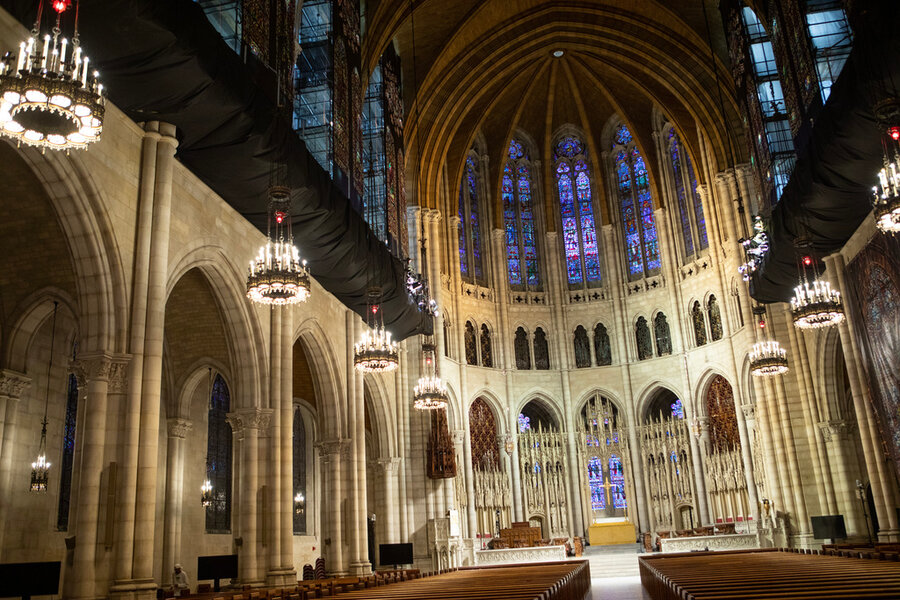Racial unity in America’s pews
Loading...
Every few months, a new survey offers another snapshot of the state of Christianity in the United States. Taken separately, the surveys invite different conclusions. Yet together, they point to a stirring of spiritual thought – particularly in regard to the role of church in racial reconciliation.
Indeed, even as millions of Americans have stopped going to church over the past 25 years, churches have become more multiracial during the same period. Earnest wrestling to uproot legacies of racial division coincides with a broadly shared hunger among churchgoers for unity and inclusivity. A Lifeway Research poll earlier this year found that large majorities of American Christians, across denominations, want their churches to do more to promote ethnic diversity.
That may reflect the unique capacity of religious institutions to emphasize shared values, notes Daniel Williams, author of a 2021 book on Christianity and politics in America. “Being part of a religious community often forces people to get along with others – including others with different political views,” he wrote in The Atlantic earlier this month.
Several signs point to the churn taking place within American Christianity over race. The Southern Baptist Convention this week elected a Black pastor to lead its ethics and religious advocacy for the first time. In June, the archbishop of Philadelphia, Nelson Pérez, issued a pastoral letter calling on Catholics to salve racism with love. “That means that whatever wounds one, even if unintentional, is everyone’s responsibility to heal,” he wrote.
Much of the work taking place is happening without much notice. “From theology, small group bible studies, fellowship activities, honoring and recognizing different cultural heritage months, learning about each other, sparking dialogue,” Yolanda Johnson, a diversity trainer who works with churches, told Colorado Public Radio in August. “I’ve seen leadership evolve and change and become more diverse. I’ve seen people change.”
In the three years since the summer of protests for racial justice, a growing number of church leaders have tried to break away from harmful racial legacies. “If we are truly allowing Jesus to shape us, and we’re truly growing in grace, we’re going to desire the best for our brothers and sisters,” the Rev. Derwin Gray, pastor of Transformation Church near Charlotte, North Carolina, told The Washington Post. “We’re not going to deny the impact of the past. We’re not going to live in the past. We’re going to join hands together to move forward to a better future.”
That unity – and Christianity’s enduring relevance – says Kris Dillard, pastor of Marked Church in Fayetteville, North Carolina, is grounded in more than human resolve. “The truth of God’s word always trumps race and culture,” he said in a sermon last weekend.







